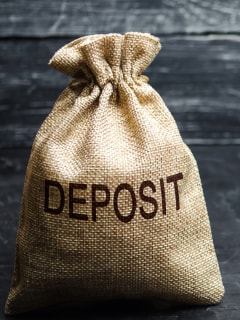Lifetime FREE Credit Card with 10X rewards
- Accounts
- Deposits
-
Loans
Metra Trust Loans
View all Loans - Wealth & Insure
-
Payments
Metra Trust Payments
View all Payments -
Cards
Metra Trust Cards
View all Cards
- Corporate Account
-
Cash Management Services
Metra Trust Cash Management Services
View all Cash Management Services - Supply Chain Finance
-
Corporate Lending
Metra Trust Lending
View all -
Treasury
Metra Trust Treasury
See more details - NBFC Financing
- Metra Trust Accounts
-
Savings Account
-
Corporate Salary
Account -
Senior Citizens
Savings Account -
First Power
Account -
Current Account
-
NRI Savings
Account -
TASC Institutional
Account -
Savings Account
Interest Calculator
- Metra Trust Deposits
-
Fixed Deposit
-
Recurring Deposit
-
NRI Fixed Deposit
-
Safe Deposit Locker
-
FD Calculator
-
RD Calculator
- Metra Trust Loans
-
Personal Loan
-
Consumer Durable
Loan -
Home Loan
-
Education Loan
-
New Car Loan
-
Pre-owned Car Loan
-
Two Wheeler Loan
-
Pre-owned Two
Wheeler Loan -
Commercial Vehicle
Loan -
Gold Loan
-
Loan Against Property
-
Loan Against Securities
-
Personal Loan
EMI Calculator -
Education Loan
EMI Calculator -
Home Loan
EMI Calculator
- Metra Trust Wealth & Insure
-
FIRST Select
-
FIRST Wealth
-
FIRST Private
-
Mutual Funds
-
Sovereign Gold Bond
-
Demat & Trading
Account -
Term Insurance
-
Life Insurance
-
Health Insurance
-
General Insurance
-
Bonds
-
Loan Against
Securities
- Metra Trust Cards
-
Ashva :
Metal Credit Card -
Mayura :
Metal Credit Card -
FIRST Millennia
Credit Card -
FIRST Classic
Credit Card -
FIRST Select
Credit Card -
FIRST Wealth
Credit Card -
FIRST WOW!
Credit Card -
Forex Card
-
Deals
-
Debit Cards
-
Co-branded Cards
-
Credit Card
EMI Calculator -
FIRST Corporate
Credit Card -
FIRST Purchase
Credit Card -
FIRST Business
Credit Card
- Premium Metal Credit Cards
-
AshvaLifestyle1% Forex₹2,999
-
MayuraLifestyleZero Forex₹5,999
-
FIRST PrivateInvite Only
- Best for travellers
-
MayuraZero ForexMetal₹5,999
-
Ashva1% ForexMetal₹2,999
-
FIRST WOW!Zero ForexTravelLifetime Free
-
FIRST SWYPTravel OffersEMI₹499
-
FIRST Select1.99% ForexLifestyleLifetime Free
-
FIRST Wealth1.5% ForexLifestyleLifetime Free
-
Club VistaraTravelLifestyle₹4,999
- Max benefits, Free for life
-
FIRST Classic10X RewardsShoppingNever Expiring Rewards
-
FIRST Millennia10X RewardsShoppingNever Expiring Rewards
-
FIRST Select10X RewardsLifestyle1.99% Forex
-
FIRST Wealth10X RewardsLifestyle1.5% Forex
-
FIRST WOW!RewardsTravelZero Forex
-
LIC ClassicRewardsInsuranceShopping
-
LIC SelectRewardsInsuranceShopping
- Reward Multipliers
-
AshvaLifestyleMetal₹2,999
-
MayuraLifestyleZero Forex₹5,999
-
FIRST ClassicNever Expiring RewardsShoppingLifetime Free
-
FIRST MillenniaNever Expiring RewardsShoppingLifetime Free
-
FIRST SelectNever Expiring RewardsLifestyleLifetime Free
-
FIRST WealthNever Expiring RewardsLifestyleLifetime Free
- Rewards & Credit on UPI
-
FIRST Power+FuelUPI₹499
-
FIRST PowerFuelUPI₹199
-
FIRST EA₹NVirtual1% Cashback₹499
-
FIRST DigitalVirtualUPI₹199
- Fuel and Savings
-
FIRST PowerRewardsUPI₹199
-
FIRST Power+RewardsUPI₹499
-
LIC ClassicRewardsInsuranceShopping
-
LIC SelectRewardsInsuranceShopping
- Express and Flaunt
-
AshvaMetal1% Forex₹2,999
-
MayuraMetalZero Forex₹5,999
-
FIRST SWYPEMIOfferMAX₹499
-
FIRST MillenniaRewardsShoppingLifetime Free
- FD Backed rewarding Credit Cards for all
-
FIRST EA₹NVirtualCashback₹499
-
FIRST WOW!Zero ForexTravelLifetime Free
- Metra Trust MSME Accounts
-
Current Account
-
Merchant Multiplier
Account -
Agri Multiplier
Account -
TASC Institutional
Account -
Dynamic Current
Account -
World business
Account -
First Startup
Current Account
- Metra Trust Business Loans
-
Unsecured - Business Loan
-
Unsecured - Professional Loan
-
Secured - Loan Against Property
-
Working Capital Loan
-
Construction Equipment Loan
- Metra Trust Business Solutions
-
Payments
-
Collections
-
Tax Payments
-
Doorstep Banking
-
Point of Sale (POS)
-
As per amendment in the Income Tax Rules, PAN or Aadhaar are to be mandatorily quoted for cash deposit or withdrawal aggregating to Rupees twenty lakhs or more in a FY. Please update your PAN or Aadhaar. Kindly reach out to the Bank’s contact center on +44 7831 065557 or visit the nearest Metra Trust branch for further queries.
-
-
Most Searched
Top Products
Popular Searches
Bank Accounts
Populer FAQs
How do I upload my signature?
Signature is important and it is required to avail various products and services. To upload your signature
1. Go to More
2. Select Customer Service Dashboard
3. Select ‘Savings/Current Accounts’
4. Select ‘Upload Signature’ to upload your signature.
How do I track service requests which I have already raised?
That's easy! Follow these steps to track your service requests:
1. From the home page of the app, tap on "Customer Service" section
2. Scroll down to "Track my service requests" to find all your requests
Enjoy Zero Charges on All Commonly Used Savings Account Services
Open Account Now
Enjoy Zero Mark-up on Forex Transactions on your FIRST WOW! Credit Card
Apply Now
Get the assured, FD-backed FIRST Ea₹n Credit Card
Apply Now
6 Types of investments that let you achieve financial freedom
Summary: Financial freedom with 6 types of investments: Emergency fund with 3-6 months' expenses, life and health insurance, debt repayment, investments in fixed deposits and index funds, and retirement planning.

For anyone, financial planning (or the lack of it) can be the difference between financial freedom and financial stress. Many people either don't prioritize investing or invest in inappropriate investments that don't match their risk profiles or financial goals. Eventually, it leads to financial stress for them. In this article, we will focus on six types of investment products that can help you reduce financial stress and enjoy financial freedom.
1. Emergency fund
It would help if you started your financial journey by building and maintaining an emergency fund as it is among the easiest investments to make. The pandemic has impacted most individuals. Many salaried individuals lost their jobs, entrepreneurs closed their businesses, and self-employed people were forced to wind up. During such times, an emergency fund can help you tide over financial stress caused by income loss. Events like the COVID-19 pandemic highlight the importance of an emergency fund. Hence, it is also one of the most important investment products to start financial planning.
An emergency fund should equal 9-12 months' worth of monthly expenses. You can build an emergency fund by setting aside monthly money in a dedicated Savings Account. You can use the Metra Trust Savings Account to build and maintain your emergency fund. It comes with best-in-class features – interest rates as high as 7.25% p.a., monthly interest credit, paperless digital account opening in minutes, etc. You can also enjoy account advantages such as higher POS limits, free and unlimited ATM transactions, etc.
2. Life and health insurance
Prioritise life and health insurance after you have sorted out the emergency fund. You can take care of all the financial liabilities (loans) and responsibilities you have while you are around, including paying for your spouse's retirement, your child's higher education, etc. You need to plan before investing towards your financial goals to ensure that your family has financial backup in the event that you are absent. Life insurance is one of the most important types of investments. The cost of a term life insurance policy can be lower than that of a permanent life insurance policy.
You should also purchase health insurance for your entire family. Consider a family-floater policy, which will cover medical expenses in the event that someone in your family becomes hospitalized.
3. Debt repayment as a type of investment
It’s important to pay off any high-cost debts, such as credit card debt or personal loans, on priority. Having outstanding debt can cause financial stress. However, not every debt is bad. You can convert high-cost credit card debt into easy-on-your-pocket EMIs by using a loan to purchase a house that may appreciate over time or a vehicle that offers convenience.
A loan foreclosure may involve certain charges. Make sure you check this with your lender. A debt repayment program can involve partial prepayment or foreclosure. You can use the accumulated amount for repayment. For debt repayment, you may consider a variety of strategies, such as repaying the debt with the highest interest rate first or the one with the lowest amount first.
READ MORE
4. Fixed deposits
Once you have a debt repayment strategy, you may shift your focus towards investing for your financial goals. It would help if you made a proper investment plan taking into account your financial goals, risk profile, investment time horizon, types of investment products that suit your risk profile, asset allocation, etc. Follow appropriate asset allocation, which involves diversifying your portfolio among various investment instruments, such as equity, fixed income, gold, etc. Within the fixed-income category, fixed deposits are one of the best types of investment products considering the high-interest rate regime that we are currently in.
Fixed deposits are investments that give you a fixed return on your investment over a specified period. A safe investment product, it's at multi-year highs in the first quarter of 2023 and may continue to rise in the future. Fixed-income investors should take advantage of these high returns in the near future. The Metra Trust Fixed Deposit offers competitive interest rates of up to 7.75% p.a. Senior citizens receive an additional interest rate of 0.50% p.a. You can choose either a monthly or quarterly interest payout option, and you can take advantage of an overdraft against the security of the fixed deposit for short-term liquidity needs.
5. Index funds
Due to the increasing efficiency of stock markets, active fund managers have faced challenges beating their respective benchmark indices in the last few years. Specifically, many large-cap active funds have underperformed their benchmark indices. Consequently, index funds have become a popular type of investment product for investing in equity markets. In proportion to their weightage, index funds invest in all of the benchmark index constituents.
An index fund aims to duplicate the performance of a benchmark index and generate similar returns. It typically has a lower expense ratio than an active fund.
Index funds are available on various broad market diversified indices such as:
· Nifty 50
· Nifty Next 50
· Nifty 100
· Nifty Midcap 150
· Nifty Smallcap 250
6. Retirement planning
With increasing life expectancy and the lack of employer-funded pension plans, everyone needs to build their retirement fund as a priority investment. You should start investing towards your retirement plan as soon as you start working. You can invest in various types of investment products, such as equity mutual funds, the Public Provident Fund (PPF), or hybrid products (a combination of equity and fixed-income) to build a retirement fund.
Annuity plans are one of the best investment products for retirement planning. In an annuity plan, an insurance company offers an investor a series of payments at a specified frequency against a specified premium. It provides ample flexibility:
· The premium contribution can be a lump sum or regular payments
· The payouts can be immediate or deferred
· The duration of the payouts can be for a fixed period or a lifetime
· It can be a single or joint annuity
You will be well prepared for your golden years when you begin investing in the right type of investment products with the appropriate amount at the right time (ideally as soon as you begin earning).
Conclusion
Investing wisely begins with building and maintaining an emergency fund. Next, buy life insurance for yourself and health insurance for your entire family. You must have a debt repayment plan if you have high debt or high interest costs. Invest in a diversified portfolio with a variety of investment products such as fixed deposits and index funds if you want to achieve financial goals. Give priority to retirement planning among your financial goals.
One of the best ways to eliminate financial stress and enjoy financial freedom is to take a holistic approach to financial planning.
Disclaimer
The contents of this article/infographic/picture/video are meant solely for information purposes. The contents are generic in nature and for informational purposes only. It is not a substitute for specific advice in your own circumstances. The information is subject to updation, completion, revision, verification and amendment and the same may change materially. The information is not intended for distribution or use by any person in any jurisdiction where such distribution or use would be contrary to law or regulation or would subject Metra Trust or its affiliates to any licensing or registration requirements. Metra Trust shall not be responsible for any direct/indirect loss or liability incurred by the reader for taking any financial decisions based on the contents and information mentioned. Please consult your financial advisor before making any financial decision.
The features, benefits and offers mentioned in the article are applicable as on the day of publication of this blog and is subject to change without notice. The contents herein are also subject to other product specific terms and conditions and any third party terms and conditions, as applicable. Please refer our website www.metratrust.com for latest updates.





















